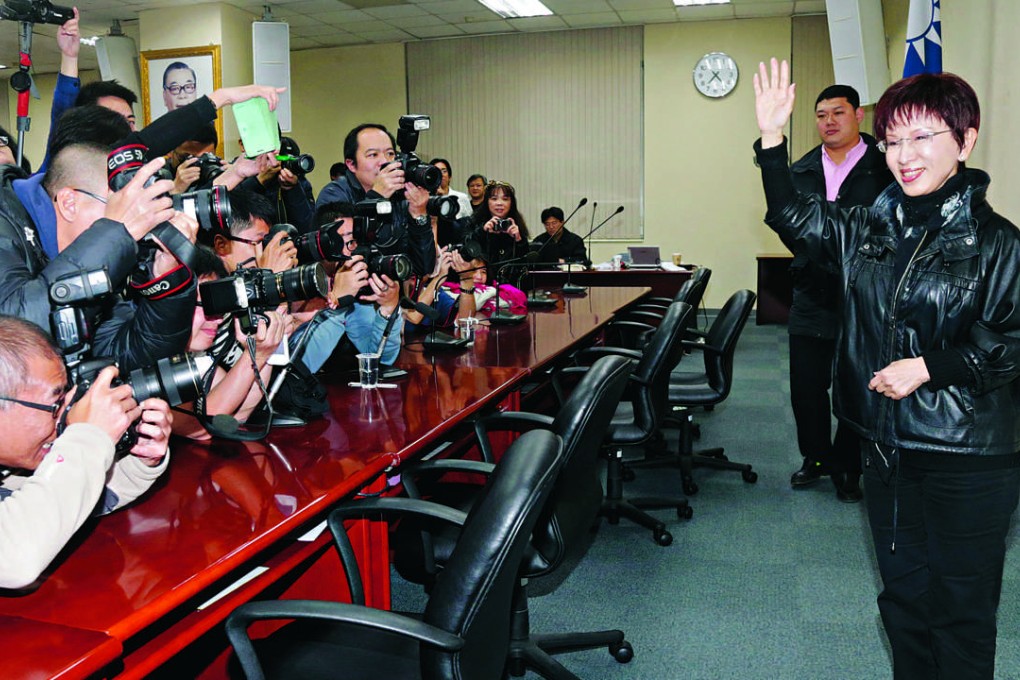Taiwan's ousted presidential nominee Hung Hsiu-chu elected as Kuomintang's first woman leader
Forsaken by the party in her bid to run in last year’s disastrous presidential elections, it now tasks her with rebuilding its fortunes from the ashes

Members of Taiwan’s beleaguered Kuomintang have redeemed former deputy legislature speaker Hung Hsiu-chu by electing her the first female leader of the century-old party during a by-election on Sunday.
Analysts, however, said it remained to be seen whether Hung could emulate the success of Tsai Ing-wen, who led the once collapsing pro-independence Democratic Progressive Party back to power following the jailing of former DPP chairman and president Chen Shui-bian for corruption.
President Xi Jinping congratulated from Beijing, hoping the KMT will continue to cooperate with the Communist Party in upholding the 1992 consensus and oppose Taiwan Independence.
But awaiting Hung is a series of tough challenges, not the least how to put the embattled party – which suffered its worst ever electoral defeat in January – back on its feet.
The mainland-friendly Hung, 67, captured 78,829 votes, or more than 56 per cent of votes cast, beating acting chairwoman Huang Min-hui by 23 percentage points and two other competitors to win the top post in the fiercely fought four-way election.
In October, in the middle of running for president, she was abruptly stripped of her nomination by the KMT so that former chairman Eric Chu could run for president in January. But the late showing Chu failed to stop his opponent Tsai Ing-wen and her DPP colleagues winning crushing victories in in presidential and parliament polls. Chu later resigned as chairman to take responsibility for the electoral rout, which for the first time saw the KMT lose its parliamentary majority.